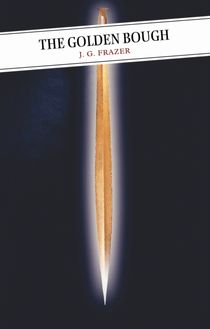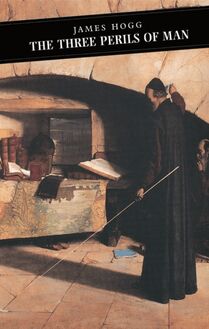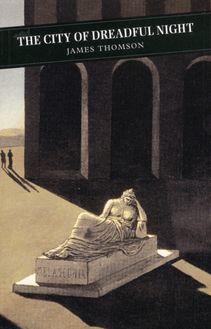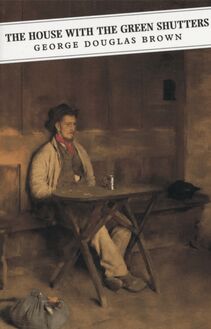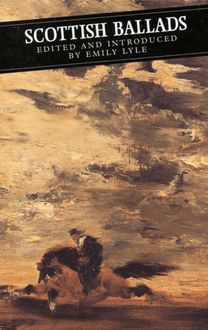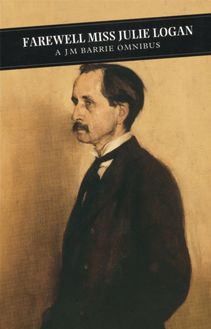Land Of The Leal , livre ebook
366
pages
English
Ebooks
2010
Vous pourrez modifier la taille du texte de cet ouvrage
Obtenez un accès à la bibliothèque pour le consulter en ligne En savoir plus
Découvre YouScribe en t'inscrivant gratuitement
Découvre YouScribe en t'inscrivant gratuitement
366
pages
English
Ebooks
2010
Vous pourrez modifier la taille du texte de cet ouvrage
Obtenez un accès à la bibliothèque pour le consulter en ligne En savoir plus
Publié par
Date de parution
01 juillet 2010
Nombre de lectures
2
EAN13
9781847675194
Langue
English
Publié par
Date de parution
01 juillet 2010
Nombre de lectures
2
EAN13
9781847675194
Langue
English
James Barke
THE LAND OF THE LEAL
Introduced by John Burns
from Elegy written in a Country Church-Yard by Thomas Gray
Oft did the harvest to their sickle yield,
Their furrow oft the stubborn glebe has broke;
How jocund did they drive their team afield!
How bow’d the woods beneath their study stroke!
Let not Ambition mock their useful toil,
Ther homely joys, and destiny obscure;
Nor Grandeur hear with a disdainful smile
The short and simple annals of the Poor.
Nor you, ye proud, impute to these the fault
If Memory o’er their tomb no trophies raise,
Where through the long-drawn aisle and fretted vault
The pealing anthem swells the note of praise.
But Knowledge to their eyes her ample page
Rich with the spoils of time, did ne’er unroll;
Chill Penury repress’d their noble rage,
And froze the genial current of the soul.
Th’ applause of list’ning senates to command,
The threats of pain and ruin to despise,
To scatter plenty o’er a smiling land,
And read their history in a nation’s eyes.
Their lot forbad: nor circumscribed alone
Their growing virtues, but their crimes confined;
Forbad to wade through slaughter to a throne,
And shut the gates of mercy on mankind.
Contents
Note
Introduction
BOOK ONE Ancient of Days
BOOK TWO Bonnie Galloway
BOOK THREE Border Ballad
BOOK FOUR The West Neuk of Fife
BOOK FIVE Within the City Walls
Note
The chronological limits of this tale may be taken from the birth of the hero’s father in 1820, to the point where we bid farewell to the heroine in 1938. Between this rough dating a strict chronology is a matter of no particular import to the reader.
As with time so with speech. The Scottish dialects are of great variety and beauty. But it is outwith the author’s purpose to record them phonetically. And so the broad strong vowels of Galloway, the burr of the Borders, the lilt of the Fifers and the peculiar recitative of the Glaswegians has been no more than indicated.
The basic material of imaginative literature is the product of experience; and since this is a novel, the characters, both in regard to time and place, are wholly fictitious and imaginative. The spiritual validity alone remains historically accurate.
The world moves relentlessly towards the resolving of its historic discords. But the events of our generation are on too vast a scale to come within the organisational scope of our literary artists. Nevertheless we cannot throw down our pens in despair and endeavour to console ourselves with the knowledge that, in a more leisured age, when the historic discords have been resolved, the future Tolstoy will then (and only then) be in a position to complete the sequel to War and Peace .
In the meantime we must do our work as best we may. In relation to imaginative literature, as in relation to any other work, we can only justify ourselves by our ability and our honesty. And if honesty compels us to face the major political and economic issues of our generation then we confront an obligation which we must discharge, not as politicians or economists (far less as propagandists of a political party), but as artists, conscious of our traditions, grateful for our heritage and imbued with a deep sense of the responsibility we share for that grand total of all art and human endeavour – civilisation.
J.B., Bearsden, 19 December 1938
Introduction
James Barke (1905–58) is well known for his fictionalized biography of Burns, Immortal Memory , which appeared in five volumes between 1946 and 1954. Few people have read The Land of the Leal (1939), yet this is probably his best book and the one which makes his most important and lasting contribution to Scottish literature. It has been described by F.R. Hart in The Scottish Novel as being comparable in scope and design to Lewis Grassic Gibbon’s A Scots Quair .
The Land of the Leal, as Barke wrote in an earlier novel, Major Operation (1936), is the Scottish peasant’s Heaven, where there is neither heartbreak nor sorrow, cauld nor care; where he is free from all human oppression and injustice. And in telling the story of David and Jean Ramsay’s lifelong quest for such peace of mind, the novel presents a vivid picture of life in late nineteenth-and early twentieth-century Scotland. For as the Ramsays move from place to place they come into contact with many different layers of Scottish society, and each successive encounter, each change in their circumstances, serves to redefine and sharpen their awareness of who they are. Each move, in a progression from backbreaking work on the land to working in the great Glasgow shipyards, brings them right up to date as participants in one of the greatest social changes of our time – the move towards an increasingly technological society:
the basis of the agricultural life was breaking up. The introduction of machinery and labour-saving devices was shattering the old life that was governed by the rhythm of man and beast. Economic necessity drove men to look away from the fields and the byres towards the industrial centres that produced the machines. The railway linked them with those centres. In the cities there was work and the vitality of a new life.
It is against this background of dramatic social upheaval that the young David Ramsay decides to seek something better for his wife and child than the unremitting harshness and brutality of life on a Galloway farm. A job turns up in the Borders, and the Ramsays set out on their long journey, a journey through Scotland which is also a journey towards a deeper understanding of themselves, their children and their marriage. It is a long, hard journey and at its end even the voyagers themselves are uncertain of its success. Yet such doubts are signs of one of the most important aspects of the journey: the Ramsays have truly lived their lives. They have lived through personal tragedy and loss with a deep courage sustained by their faith in life itself: a feeling that, whatever happens, life is a marvellous thing. Their attitude to life is always positive and creative so that everything that happens to them helps them to grow as human beings.
Yet they are two very different characters. David is quiet and shy, ‘introspective and analytical to an almost morbid degree’. At the same time he is also courageous and determined. He may lack Jean’s great vigour, but he is still a fighter. While he makes no attempt to ‘lord it’ over anyone else, he is always quick to stand up for himself and for his people, whether it be his family or his fellow workers. At Caddomlea, for instance, he is not afraid to contradict Sir Charles’s patronizing remarks about ‘the labourer in his humble cottage’. Later, completely caught up in circumstances much bigger than himself, he stands up for his daughter’s good name against the self-righteousness of the aristocracy even though it could jeopardize his chances of a new job and a new life for his family elsewhere. For all his reserve, David Ramsay is a remarkable man, although many of those with whom he comes into contact only realize this when it is too late.
Jean Gibson is a lively, sharp-tongued, quick-witted character whose literary antecedents include the Wyf of Auchtermuchty and Kynd Kittock as well as Chris Guthrie. And like some of the women of ballad and folk-tale she is also possessed of the awesome ability to lay on an effective curse. She is no fool, and does not suffer fools gladly. Scrupulously honest herself, she is quick to attack dishonesty in others, as a Glasgow butcher finds out to his cost when he tries to sell her a less than perfect chicken:
‘"That’s a lovely young pullet, madame," says he. It was a pullet the same time as you were a cockerel…’
In all things she is practical and down-to-earth, and ‘lives for the present and the immediate future’. Where David is perhaps over-imaginative, Jean is almost incapable of introspection and has an unwavering faith in her own judgement; a strength which Barke points out might well be seen as her greatest weakness.
In many ways the marriage of these two very different characters seems an obvious recipe for disaster, and much of the book’s interest must lie in how their relationship develops as, over the years and in ever-changing circumstances, they come to see each other more clearly.
This is one of Barke’s strengths: the way he conveys to the reader the sense of time moving on, of characters slowly growing older and slowly changing. The reader is very much aware of the passing of youth from David and Jean Ramsay as the brightness of their courtship, the music and dancing of their wedding, begin to fade into the struggle to find a decent job and to bring up a family. It fades finally into the sadness of loss, and Jean is left with only memories to lighten her last days. Although The Land of the Leal is about many other things, it is perhaps the story of David and Jean Ramsay which gives it coherence, simply because it follows so surely the natural curve of life.
The characters themselves, though, are too close to the action to be able to make out the meaning of their own story. At the end of the Ramsays ‘long journey David is troubled that he can find no shape or pattern to his life. Yet surely this is as it should be, for a life that is fully and completely alive is always changing and developing; it can never be fixed into a static, ‘safe’ pattern. David Ramsay himself should know that better than anyone:
For David life was mystery. Sometimes the mystery was joyous and drenched in golden sunlight as when the wind caressed a field of barley or life laughed in the eyes of his child: sometimes it was sad and wrapped in impenetrable darkness.
It is this mystery – the marvellous way that life cannot be pinned down to any one ‘meaning’ or shape – which Davi
